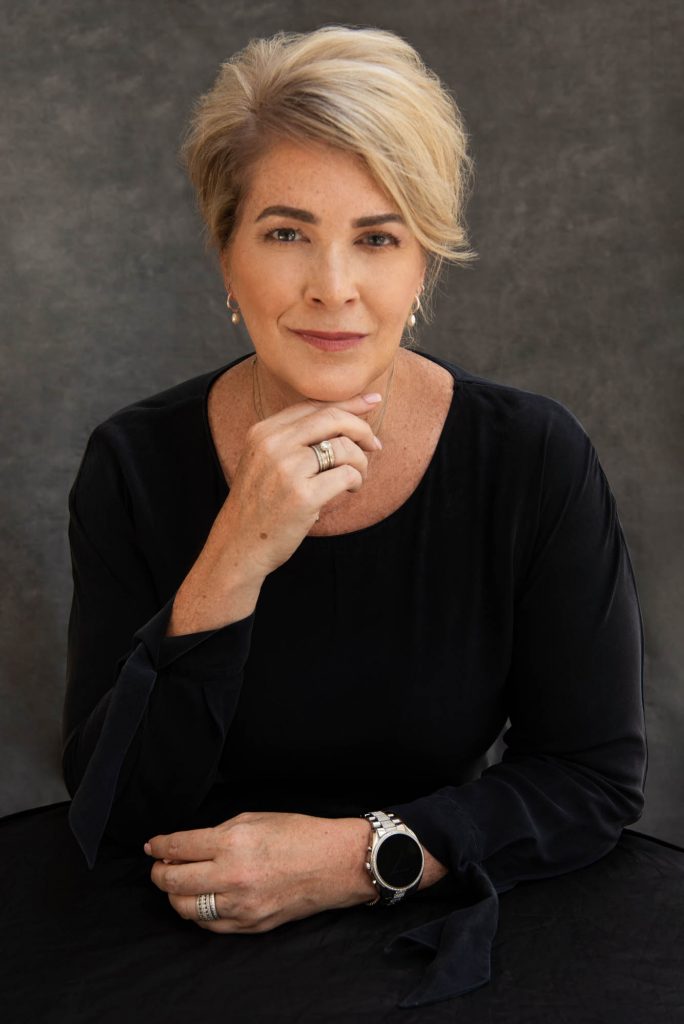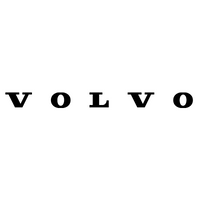In a conversation with Swedish Chamber Insights, Dr Cara Antoine addresses the Netherlands’ performance global gender equality rankings, shares her personal experience as a female leader in a male-dominated industry, and explores actionable steps that business leaders and colleagues need to take to advocate for gender equality in the workplace.
Despite the Netherlands’ typically outstanding performances in global development rankings, the country continues to fall behind in gender equality. The latest World Economic Forum’s Global Gender Report places the Netherlands 28th, far below its usually close-ranking countries, such as Sweden, ranking in 5th place. Despite almost perfect scores in Education and Health, the Dutch placement drops due to low scores in Economic Participation & Opportunity and Political Empowerment categories. These include indicators such as estimated earned income, wage equality, and representation in legislators, senior officials, and managers. Moreover, The Netherlands is one of the remaining European countries yet to choose its first-ever female head of state.
How can a country that is considered progressive in many areas be so far behind on gender equality? What actions do business leaders and companies need to take to accelerate the journey towards gender equality? In the middle of May, during the European Commission’s International Diversity Month, the Swedish Chamber Insights sat down with Dr. Cara Antoine to find out.
Dr. Cara Antoine’s passion for technology ignited when she was just 14 years old in an electrical engineering class, surrounded by boys. Her peers called her all sorts of names until Cara’s teacher made it clear that he saw no difference between her and her male classmates. He became the first teacher to express his belief in her openly, and Cara has carried the confidence it brought her ever since.
Last year, Cara’s manager chose to also believe in her as he became the first to hire a female for the prestigious position of Executive Vice President and Chief Technology, Innovation & Portfolio Officer at Capgemini, one of the world’s most renowned technology and business transformation advisory firms. Today, Cara is considered one of the company’s top thought leaders and performers, and it is safe to say her manager made the right choice.
In addition to her esteemed role at Capgemini, Cara is a leading advocate for positive change for women and underrepresented communities. She empowers women worldwide to reach new heights and brings attention to both the obvious and subtle ways gender distinctions persist in the workplace. Cara has received numerous awards for her actions, such as the Women Changing the World 2023 and Global Women in Tech’s Global Excellence Award 2022. She is the author of the best-selling book Make it Personal: Discover the Five Dimensions of Human Collaboration in the Workplace and co-author of her latest upcoming book Women Making a Difference.
When asked about the Dutch gender equality rankings, Cara explains that: “Despite all the bias training and diversity workshops that we do, the Netherlands is still moving backwards—or sideways at best”.
As is often the case in discussions about the stagnant pace of gender equality development in the Netherlands, one observation that Cara mentions is the issue of women not working full-time. According to Eurostat, the Netherlands had the highest proportion of women working part-time among all EU member states at the end of 2023. Only about a third of all Dutch women in the labour force work full-time.
“I do career training with women and often hear their frustration of not getting promoted or recognized, especially from those who are in part-time positions. Their conviction is that it should not be necessary to work full-time to be promoted to higher functions. However, there are clearly consequences of choosing to spend less time at work. Not everyone has to exceed the standard 38-hour work week, but you need to put in sufficient time to get recognized and build your clout, credibility and network.” Cara describes.

UN Women classifies marriage and family as the least successful legal area within Dutch law regarding promoting, enforcing, and monitoring gender equality. Cara explains that better-performing countries have had crucial policies supporting women working full-time in place for years. The institutional infrastructure regarding childcare and parental leave are explicit determinators in to which extent women feel like they have to choose between career and family. Still, less directly related systems can also have a big impact. For example, if child healthcare practices close at the same time as regular office hours, one parent will always have to leave work early for a doctor’s appointment with their child.
“We need to make these routines and everyday practices more accessible to enable the possibility of both working full time and taking care of your family. What we see in countries that are more progressive and equal than the Netherlands is that these types of accommodations are readily in place,” Cara says.
Coming from a background of hard work ethic herself, a sixty-plus-hour work week has been standard for Cara. With over 30 years of experience and a distinguished track record of respected leadership positions in tech and business, she has often found herself being the only woman in the room. She started to sense the discomfort her mere presence could evoke among some male colleagues already in the early stages of her career.
She describes that, at times, the men around her had a hard time understanding themselves and how to be more inclusive:
“I remember being called ‘Queen Bee’ when I was obtaining my doctoral degree, even though many people around me already held that status. I have, more times than not, received remarks about my appearance from male colleagues, even when no one else’s clothes or hair was commented on. One time on a work trip, a male colleague bluntly asked me what I thought I was doing working in the ‘man’s world”.
Cara goes on to share one of her starkest experiences, which took place several years ago in an offshore community in the oil and gas industry. Through her leadership role, Cara made a visit to an offshore facility, where hundreds of male employees had already been located for many weeks. Extensive preparations were made to ensure her safety during the visit. This included closing off a whole wing of the asset using yellow warning tape, relocating groups of men to temporary rooms, and providing round-the-clock security.
The special treatment made Cara very aware of her identity: “With all respect, my professional role was organisationally and hierarchically more senior than most of my colleagues in the asset community. Yet, due to my gender, there was this feeling of needing to accommodate the fact that a woman was coming on board and to take such extensive action to avoid harassment. You could ask yourself if it was necessary—maybe it was. Either way, it made me feel very different and like a real outsider, even within my own company. All I wanted was to blend in and focus on the work. I didn’t ask for any special treatment. I made sure to wear the same PPE gear as everyone else, as an attempt to show up as a part of the team.”
Throughout her career, Cara has adopted a collaborative approach to navigate challenges, reactions, risks, and condescending attitudes. She has never tried to act more manlike but instead describes the female archetype to be a good connector.
She values the stereotypically female traits of listening, empathy and collaboration as being useful for making connections and building relationships as her strength: “I always try to find common ground instead of responding with confrontation or dominance. My focus is always on the outcomes and how I can contribute value by focusing on my experience and capabilities while elevating and empowering the positive qualities and talents that others bring to the table.”

Cara emphasizes everyone’s responsibility to overcome discriminating and biased behaviours in the workplace for any real change to take place. She views the transformation from allyship to advocacy as vital:
“People are comfortable with being allies and supporting women. However, only supporting is not enough. We need to become active advocates and take actions that push for systematic change. We need to stand up for women and empower them to be visible. Nominate them, hire them, give credit to their ideas, promote them, and assign them big projects. You should ask yourself: What are YOU doing to activate organisational change? Are you actively involved in a conversation about what the problem is that you see and what you are doing about it?”.
There is more than enough data to prove that diverse and inclusive organisations that embrace women’s ideas and make women use their voice can show better performances, Cara explains. For this to happen, both men and women need to be catalysts for institutional change and see their own responsibility in advocating for the unrepresented.
Cara specifically mentions the urgency of male leaders committing to hiring women into powerful positions: “I think this is achieved by men and women mixing their networks. Once women get visibility, they are more likely to get hired. When women step into traditionally male-dominated roles, it sends a very powerful message and reshapes the narrative of what different genders can or cannot do. The hard fact is that there are currently more men in powerful positions than women—therefore, men in leadership roles carry an extra responsibility to be advocates.”

In 2018, the World Bank reported that 104 countries still legally restricted women from working in specific fields, such as manufacturing, construction, and transportation. Coming from the tech industry herself, Cara highlights digitalization as a significant equalizer, opening doors for women to pursue opportunities and enter new industries traditionally dominated by men. The digital transformation of these industries is reshaping perceptions, distancing roles from tasks historically deemed more suitable for men.
“Let’s take a train operator as an example. The notion has been that women can’t be train operators since that is all about heavy lifting, turning big cranks, and doing heavy work. Now, trains are for the most part digitalized. And almost anyone can push a button, right?” Cara laughs. “I want to encourage women to educate themselves and ensure that they have the digital skills that will be needed. Be learn-it-all’s and let your ambitions be known”.
Cara is a strong believer that if you are not a part of the solution, you are a part of the problem. To encourage the Swedish Chamber Insights readers to become advocates, she has summarized the following calls to action:
Challenge stereotypes
Actively dismantle gender-based stereotypes for the pursuit of passion. Everyone should feel like “If there’s a job out there, I can do it”. This starts with a mindset, in which our preprogrammed ideas of what we dream of becoming from a very young age. For example, boys are often put in pyjamas with astronauts and rocket ships, whereas we put our daughters in pyjamas with kittens and ice cream cones. This already enables boys to dream big—they can go to space! Challenging stereotypes needs to begin already with our children. So, parents reading this, let’s enable our children to create the future they want!
Promote inclusivity
It is one thing to tick a box by hiring a woman, but advocacy doesn’t end there. We have to champion inclusivity and ensure that women are respected and encouraged in their roles. Listen to everyone and be actively inclusive. Give credit and responsibility to the owners of ideas.
Empowerment through education
Women must be learn-it-all’s. Advocate for quality education and mentorship, and recognize how this transforms individuals. Be the role model who inspires future generations.
Be the changemaker
Make sure to take tangible actions and engage in activities that foster inclusivity and value diversity. Cheering on is not enough and will not help move the Dutch numbers forward.
Champion female leadership and representation
Encourage women’s leadership and advocate for diverse representation. Once women hold leadership positions, they can become catalysts of positive change for others. Transformative change is within your grasp, and you can contribute to a world where women shape a better future for themselves and the collective good. Your actions can represent a ripple effect beyond individual success to become part of a collective force for change. The script is yours; step into the limelight and be part of this journey toward a brighter, more inclusive future. Ensure the path is not isolated and empower others to maximise their success.
Are you curious to learn more from Dr. Cara Antoine? Releasing soon, in her newly collaborative book, Women Making a Difference, Cara shares her chapter on what it means to ‘Be the First’!
Follow Cara on LinkedIn: Dr. Cara Antoine | LinkedIn
Photo Credits: Maria Cavali
This article is written by Alexandra Gummesson for Swedish Chamber Insights.
































